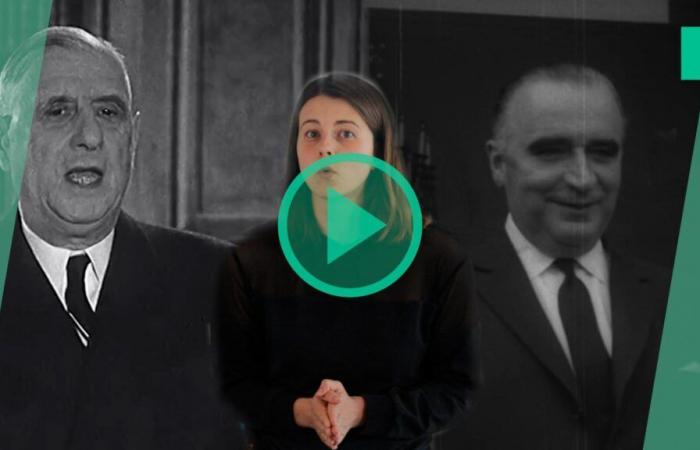Reading this content may result in cookies being placed by the third party operator who hosts it. Taking into account the choices you have expressed regarding the deposit of cookies, we have blocked the display of this content. If you wish to access it, you must accept the “Third Party Content” category of cookies by clicking on the button below.
Play Video
POLITICS – He survived the first, in October. Michel Barnier's chances of not falling after his second motion of censure are now tiny. The National Rally in fact indicated this Monday, November 2 that it will vote following the 49-3 activated by the Prime Minister during the debate on the Social Security budget. The vote which should take place this Wednesday therefore promises to be historic. But not unprecedented.
Because as the video at the top of the article reminds usthe scenario has already occurred on one occasion leading to a Gaullian twist. It was 1962, a year that marked a turning point for President Charles de Gaulle and for the very young Fifth Republic. On August 22, the Petit Clamart attack was committed against the head of state and his wife by a commando of 12 men including members of the OAS, the armed wing of supporters of French Algeria. .
The terrorists miss their target, but the emotional shock is immense for the French and for General de Gaulle too. He thinks about his succession and then decides to launch a project that is dear to him: changing the method of electing the President of the Republic.
Universal suffrage at the heart of the political crisis
« When my own seven-year term is over or if death or illness interrupts it before the end, the president of the republic will henceforth be elected by universal suffrage. he proposed to the French in a televised speech on September 20, 1962.
At the time, the Constitution provided for the election of the president by electors, that is to say deputies, senators and local elected officials. So the announcement plunged the parliamentarians into black anger, especially since de Gaulle did not wish to go through them, deputies and senators, but through a referendum, and therefore directly through the people.
On October 4, 1962, all the parties represented in the Assembly, except the Gaullists of course, tabled a motion of censure against the government of Georges Pompidou. It was adopted by 280 votes out of 480, more than an absolute majority. The Prime Minister then presented his resignation, refused by de Gaulle, who immediately dissolved the National Assembly. And there, nothing is going to happen as planned.
The yes wins, the Gaullists strengthened
In the legislative elections of November 18 and 25, the French decided to support the Gaullist party which pocketed 40% of the votes. Furthermore, in the meantime, on October 28, the French answered the question: “ Do you approve the bill submitted to the French people by the President of the Republic and relating to the election of the President of the Republic by universal suffrage? » And it is the yes which wins with 62.2% of the votes.
Censored, Georges Pompidou and his government are therefore, ultimately, comforted. But above all, it is de Gaulle, and through him, the office of President of the Republic, which emerges more powerful than ever.
Also see on HuffPost:
Reading this content may result in cookies being placed by the third party operator who hosts it. Taking into account the choices you have expressed regarding the deposit of cookies, we have blocked the display of this content. If you wish to access it, you must accept the “Third Party Content” category of cookies by clicking on the button below.
Play Video


